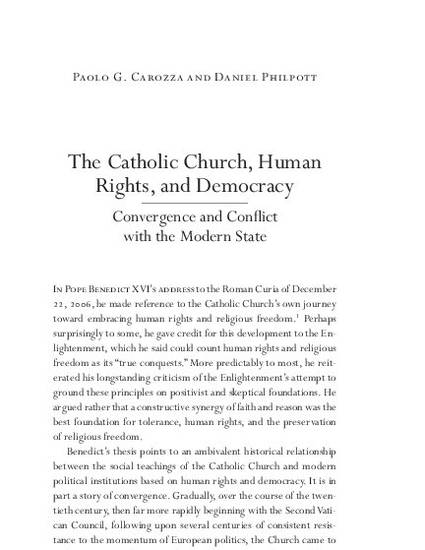
This book chapter traces the history of the Catholic Church's relationship to the modern state, focusing on the idea of sovereignty and the development of human rights and democracy. It argues that the Catholic Church's relationship to human rights and democracy in the modern world can only be understood as reflective of both a historical convergence and a persistent tension and ambivalence. The first part argues for this dual theme in the development of Catholic doctrine, where today, as over the past several centuries, the Church's conception of the common good yields both an embrace of human rights and democracy and a critique of certain aspects of their secular espousal. The second part illustrates how this parallel acceptance and tension is manifested in practice, showing that the Church's efforts to advance its teachings on human rights and democracy sometimes succeed and sometimes encounter resistance, both on account of conceptual differences with modern states and international organizations as well as because of obstructing institutional realities.
Available at: http://works.bepress.com/paolo_carozza/10/

Reprinted with permission of Logos: A Journal of Catholic Thought and Culture.